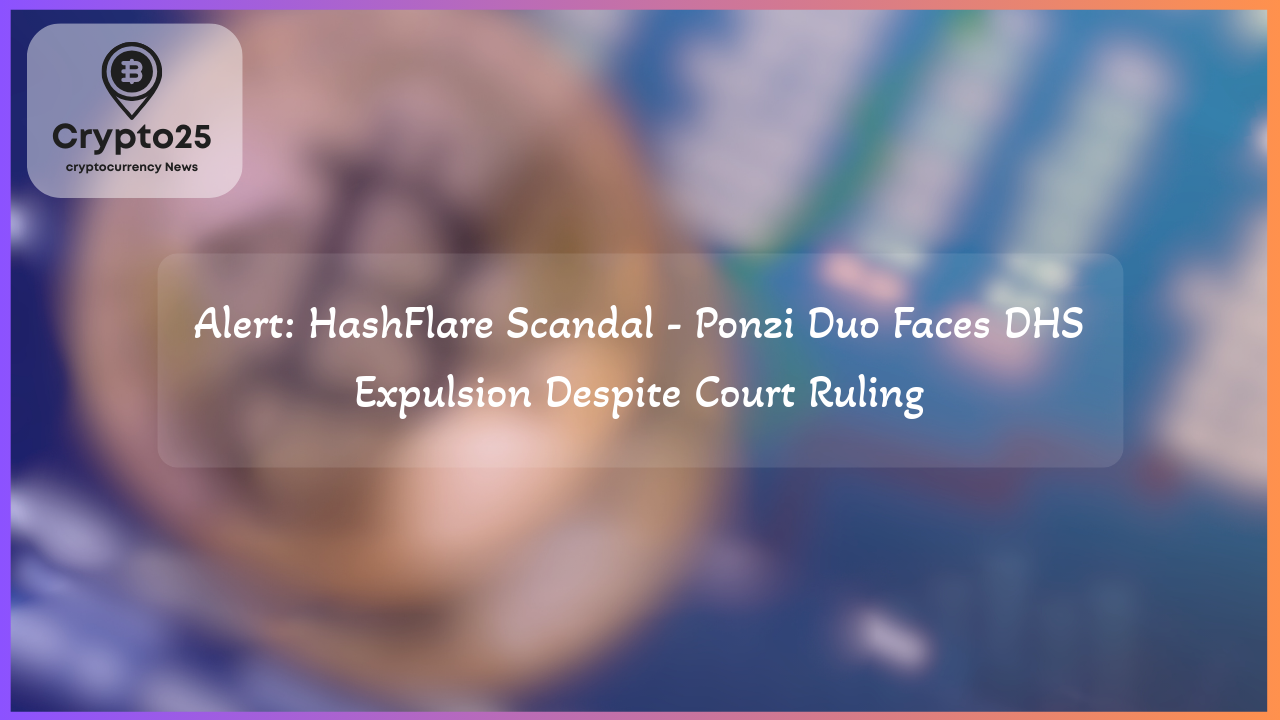
The evolving landscape of cryptocurrency continues to captivate global audiences with stories reflecting its potential and pitfalls. A recent example involves Sergei Potapenko and Ivan Turõgin, the Estonian co-founders of HashFlare, embroiled in legal battles over fraud charges. Their situation sheds light on the complexities of crypto mining operations, legal regulations, and jurisdictional challenges in an ever-changing digital economy.
### Cryptocurrency and Legal Disputes: The HashFlare Story
HashFlare, once a prominent crypto mining firm, has made headlines again, but this time not for innovation. Sergei Potapenko and Ivan Turõgin, its co-founders, face accusations of wire fraud and false advertising. Arrested in Estonia in November 2022 and extradited to the United States in 2024, the duo is currently under court-ordered jurisdiction in King County, Washington. Despite legal constraints, a contradictory directive from the U.S. Department of Homeland Security (DHS) ordered them to leave the country, creating confusion and uncertainty in their case.
The allegations primarily center on falsely marketed cloud-based crypto mining services and an initial coin offering (ICO) for a digital bank project, Polybius. The ICO raised an impressive $31 million, but rather than using the funds for their intended purpose, prosecutors argue that the pair misused the proceeds for personal gain. As part of their plea agreement, Potapenko and Turõgin have consented to forfeit over $400 million in assets, including cryptocurrency holdings, real estate, and mining equipment. Their sentencing is scheduled for August 14, underscoring the repercussions of fraudulent activities in crypto ventures.
### U.S. Department of Homeland Security’s Role in Crypto Legal Cases
In a surprising twist, the DHS emailed both defendants on April 6, directing them to exit the U.S. immediately or risk legal repercussions. This requirement seemingly conflicts with a federal court order compelling them to remain within the jurisdiction of King County. The inconsistency between federal agencies highlights the ambiguities in crypto-related legal enforcement, especially for international cases like this.
Lawyers representing Potapenko and Turõgin have filed motions to address this issue, signaling concerns about wrongful deportation. They referenced a recent high-profile case involving an individual mistakenly deported to a Salvadoran prison, further reinforcing the potential dangers of jurisdictional mismanagement. The legal defense team has indicated they might seek a hearing requiring DHS agency officials to clarify their demands.
This situation underscores the challenges posed by regulatory and jurisdictional complexities in cryptocurrency. For international entrepreneurs entering the U.S. legal landscape, this case provides a cautionary tale about compliance, accountability, and consistent communication between federal authorities and judicial mandates.
### Crypto Mining Fraud: A Wake-Up Call for Investors
Crypto enthusiasts and investors must take note of the warnings highlighted in the HashFlare incident. From 2015 to 2019, HashFlare gained credibility as a trusted crypto mining platform. However, prosecutors accused the company of not operating its mining equipment as advertised, deceiving customers and violating the trust of the budding crypto community. These revelations underscore the importance of due diligence for investors in crypto mining and ICO initiatives.
Moreover, the defendants’ involvement in Polybius reflects the difficulties of balancing innovation and ethical behavior in the crypto space. By exploiting public interest in blockchain-based banking, Potapenko and Turõgin managed to amass millions while bypassing their responsibilities. Such schemes remind stakeholders to thoroughly assess the viability and legitimacy of projects before participating in any crowdfunding or ICO ventures.
| Title | Details |
|---|---|
| Market Cap | $1.2 Trillion |
| HashFlare Assets Forfeited | $400 Million |
| Polybius ICO Funds | $31 Million |
### The Road Ahead: Regulation and Investor Caution in Crypto
As cryptocurrencies continue to inspire innovation, incidents like those involving HashFlare underline the pressing need for robust legal frameworks and investor caution. U.S. agencies such as DHS and the courts must ensure clear and consistent communication to address jurisdictional ambiguities. Meanwhile, investors must exercise due diligence and hold companies accountable, demanding transparency and adherence to regulatory requirements.
The HashFlare case serves as a timely reminder of the risks associated with unregulated crypto projects. By improving oversight and fostering accountability, the global crypto ecosystem can move forward, prioritizing trust and stability. As this case unfolds, its implications are bound to influence public perception and regulatory policies in the cryptocurrency industry for years to come.
